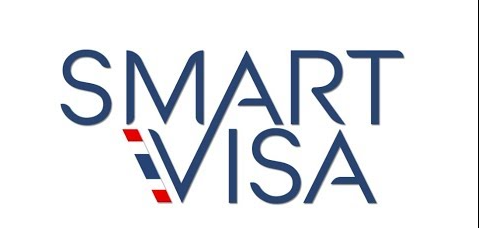
The Thailand Smart Visa is a forward-thinking initiative designed to attract highly skilled professionals, entrepreneurs, investors, and executives to work and live in Thailand. Introduced in 2018, it specifically targets industries critical to Thailand’s growth, such as technology, biotech, renewable energy, healthcare, and automation. The Smart Visa aims to enhance Thailand’s economic competitiveness by offering unique benefits such as work permit exemptions, longer stay durations, and multiple-entry privileges.
1. Categories of the Smart Visa
The Thailand Smart Visa is divided into five categories, each tailored to specific professionals and entrepreneurs. Each category has its own eligibility criteria and benefits, making the program flexible for different kinds of expertise and investments.
a) Smart T (Talent)
Designed for highly skilled professionals with specialized expertise in targeted industries such as technology, digital infrastructure, and biotech. The Smart T category requires the applicant to have a job offer from a recognized Thai company with a salary of at least THB 100,000 per month.
Key benefits include:
- Four-year visa with no need for a work permit.
- Immediate family members (spouse and children) also qualify for residency.
b) Smart I (Investor)
Targeted at foreign investors who commit substantial financial resources to the “S-Curve industries”, the Smart I visa requires an investment of at least THB 20 million in one of Thailand’s targeted sectors. These sectors include automation, medical technology, energy, and environmental services.
Key benefits include:
- Ten-year visa for eligible investors and family members.
- Multiple entries and exits without the need for a new visa.
c) Smart E (Executive)
The Smart E visa is designed for senior executives who hold key management roles in high-tech or innovation-focused firms. Applicants must demonstrate at least 10 years of experience in senior management positions and earn a monthly salary of THB 200,000.
Key benefits include:
- Valid for up to four years.
- No need for a work permit.
- Family members qualify for dependent visas.
d) Smart S (Startup)
The Smart S category is ideal for foreign entrepreneurs and startups in emerging sectors. Applicants must have at least THB 600,000 in savings and a detailed startup plan that is approved by the Thailand Board of Investment (BOI).
Key benefits include:
- Initial one-year visa with a potential for renewal based on business progress.
- Ability to live and operate a business in Thailand.
- Family members can accompany the visa holder.
e) Smart O (Other)
This category is reserved for spouses and dependents of those holding other Smart Visa types. The Smart O visa allows family members to stay in Thailand and, in some cases, work or study without needing a separate visa or work permit.
2. Eligibility and Application Process
a) Eligibility
To qualify for a Smart Visa, applicants must demonstrate their expertise, financial stability, or investment contributions to Thailand’s targeted industries. For all visa types, candidates must hold qualifications or experience in specific sectors outlined by the Thai government, including biotech, robotics, digital technology, healthcare, food processing, and automotive industries.
b) Application Process
The application process is conducted through the Thailand Board of Investment (BOI) and involves several key steps:
- Pre-qualification Assessment: Candidates must submit their qualifications, employment contracts, or investment plans to the Smart Visa Unit.
- Eligibility Approval: The BOI reviews the application to ensure that it aligns with Thailand’s targeted industries. Once approved, the applicant proceeds with the visa application at the Royal Thai Embassy or Immigration Office.
- Visa Issuance: After approval from all relevant authorities, the visa is issued. The entire process takes approximately 30 to 60 days.
3. Key Benefits of the Smart Visa
The Smart Visa program provides several exclusive benefits not available through traditional visa schemes, making it highly attractive to foreign experts and investors:
- No Work Permit Requirement: Unlike other visa categories that require a separate work permit, Smart Visa holders can work in Thailand without needing to apply for one.
- Longer Stay Duration: Most Smart Visa categories allow for a visa duration of up to four years, with some exceptions for investors who may receive up to 10 years of residency.
- Multiple Re-entry Privileges: Smart Visa holders can enter and exit Thailand as often as they like without needing a re-entry permit, offering flexibility for international business professionals.
- 90-Day Reporting Exemption: While most long-term visa holders in Thailand must report to immigration every 90 days, Smart Visa holders are only required to report their residence once a year.
- Family Inclusion: Spouses and children of Smart Visa holders can stay in Thailand under the same visa type, and in some cases, family members are allowed to work or study without a work permit.
4. Targeted Sectors for Smart Visa
Thailand’s Smart Visa is closely aligned with the country’s economic goals to foster high-tech, innovative industries. The targeted sectors include:
- Automation and Robotics: Critical for Thailand’s push toward manufacturing excellence and increasing industrial automation.
- Biotechnology: With a focus on healthcare, agriculture, and sustainable food production.
- Digital Technology: Supporting Thailand’s transformation into a digital hub, with emphasis on software development, artificial intelligence (AI), and cybersecurity.
- Healthcare and Medical: Encouraging investment in medical devices, biotech, and healthcare services to position Thailand as a medical tourism destination.
- Renewable Energy: A sector that drives sustainability, with investments in solar power, wind energy, and other green technologies.
5. Challenges and Considerations
Despite the many benefits of the Smart Visa, applicants may face some challenges:
- Strict Eligibility Requirements: The Smart Visa has stringent criteria, particularly regarding financial thresholds, work experience, and expertise in specific sectors. Applicants must carefully document their qualifications and meet industry-specific requirements.
- Business Progress Monitoring: For those applying under the Smart S (Startup) category, there is an expectation to establish and develop a business in Thailand within a year. Failure to demonstrate progress may result in visa non-renewal.
- Approval Process: The approval process can be rigorous, requiring collaboration between multiple government agencies. This may lead to delays in visa issuance, depending on the complexity of the application.
Conclusion
Thailand’s Smart Visa is a groundbreaking initiative that attracts top talent, investors, executives, and startup founders to bolster the country’s high-tech and innovation sectors. With unique benefits like work permit exemptions, long-term residency, and flexible re-entry options, the Smart Visa provides a pathway for foreign professionals to live and work in Thailand while contributing to the nation’s economic and technological growth. However, due to the program’s stringent eligibility requirements and sector-specific focus, it is essential for applicants to meet the necessary qualifications and provide comprehensive documentation during the application process.

